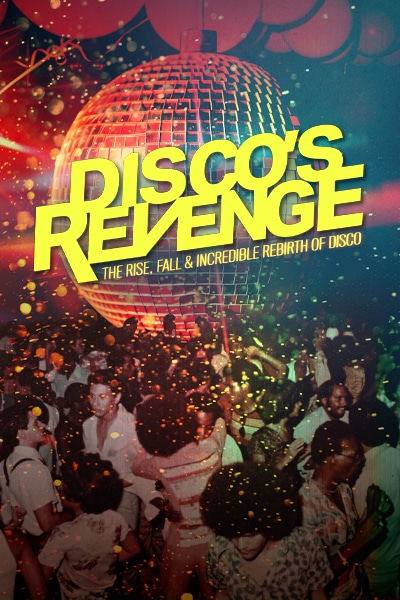
- Writers
- Omar Majeed, Peter Mishara
- Directors
- Omar Majeed, Peter Mishara
- Rating
- R (United States)
- Running Time
- 100 minutes
- Release Date (CAN)
- January 7th, 2025 (digital)
Overall Score
Rating Summary
The beginning of the 1970s saw dance music storm out of the New York underground nightclubs in spaces where Black, Latinos, and Queer people would feel safe and part of a community. Along with the revolution of the drum melodies found within R&B songs of the early records of the decade, a new musical genre would emerge with the help of the DJs of the time, the disco music. Suddenly, clubs like The Gallery and The Loft became temples to the celebration of life and societal progress. As with any art, the political significance of disco music only grew over time. The cultural explosion of dance music acted as the soundtrack for the evolution of American society, leading to riots attempting to repeal the law that would treat gay couples as guilty of sodomy.
Approaching the disco phenomenon as a societal zeitgeist rather than exclusively a musical trend, directors Omar Majeed and Peter Mishara take a holistic view of it. Their documentary, Disco’s Revenge follows a standard structure of establishing a chronology and offering background information over the course of it. Indeed, it is a didactical formula; however, Majeed and Mishara use the film as an opportunity to paint a retrospective of that era. The engaging interviewees, featuring the likes of Nicky Siano, Nile Rodgers, Billy Porter, and others, deliver a sympathetic and honest look at that time.
Those passionate tellings of their experiences of producing music or playing at those clubs provide the film a sense of honesty and care that flows throughout. Across their chronology, the directors pay tributes to the creators of the culture, and it assembles an In Memoriam segment to honor those lost in the 1980s and 1990s AIDS epidemic. During the film, Majeed and Mishara look dearly at the culture they are talking about. The seminal songs, artists, producers, and night producers get the credit for constructing a culture that would place minorities inside their comforting and loving places.
Even though the structure may fall into familiar territory in terms of music documentaries, the editing creates a sense of rhythm and continuity that expands what is on the screen. However, it does take some time to establish its concepts like how the movement got its name from books and articles about it, and how disco would become the parent for the Hip-Hop and House genres. The argumentation is succinct and riveting enough to connect well with the storyline it intends to tell. Audiences are taken on a journey highlighting how the genre came from the margins and the ghettos of society to becoming the commercial trend of the late 1970s. The film draws a successful line on how the dance movement is inherently black and queer, but record labels as capitalistic institutions would explore it until it succumbed.
The last half is where Disco’s Revenge truly suffers, as result of its repetitive structure. This stage of the film becomes too simplistic, where its thesis lacks development to keep it engaging. In this sense, when it distances itself from establishing concepts and specifics, it feels flat for a dense retrospective of a whole cultural movement and societal wave of the 1970s NYC and the east coast as a whole. The film loses steam and energy as it reaches the finish line, in a sense that the afterwards of the remaining legends of movement. It feels rushed and reduced, yet, it thrives in contextualizing how they influenced a new generation, for example, Chic’s Nile Rodgers and his hit Get Lucky with Daft Punk, which introduced disco and the 70s groovy music to a younger public.
In the end, regarding the retrospective of a rich and empowering cultural and musical movement, Disco’s Revenge is a conventional but well-organized documentary about a bygone era. The film not only flourishes in its contextualization of the dynamics and how disco and hip-hop culture is inherent to blackness and queerness, but is a vital watch to better understand modern music and the intricacies of militancy and artistic endeavors.
still courtesy of Elevation Pictures
If you liked this, please read our other reviews here and don’t forget to follow us on Twitter or Instagram or like us on Facebook.
Brazilian film writer. He is also a producer and executive producer for Zariah Filmes. Member of the International Film Society Critics Association (IFSCA), International Documentary Association (IDA), and Gotham and Media Film Institute.
Discover more from
Subscribe to get the latest posts sent to your email.
